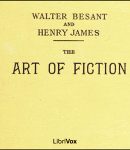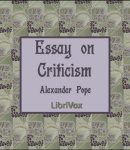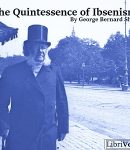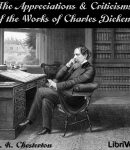
Art of Fiction
A lecture on the art of fiction, given by the English critic Walter Besant on April 25, 1884, and an answer to the lecture by American writer Henry James in the same year. (Summary by Julie VW) [chương_files]

A lecture on the art of fiction, given by the English critic Walter Besant on April 25, 1884, and an answer to the lecture by American writer Henry James in the same year. (Summary by Julie VW) [chương_files]

An Essay on Criticism was the first major poem written by the English writer Alexander Pope (1688-1744). However, despite the title, the poem is not as much an original analysis as it is a compilation of Pope’s various literary opinions. A reading of the poem makes it clear that he is addressing not so much the ingenuous reader as the intending writer. It is written in a type of rhyming verse called heroic couplets. (Summary from Wikipedia) [chương_files]

This is an essay providing an extended analysis of the works of Norwegian playwright Henrik Ibsen and of Ibsen’s critical reception in England. Shaw uses this “exposition of Ibsenism” to illustrate the imperfections of British society, using the idea of an imaginary “community of a thousand persons,” divided into three categories: Philistines, Idealists, and the lone Realist. The main discussion revolves around Ibsen’s recurring topic of the strong character holding out against social hypocrisy, while stating in his essay’s final sentence that the quintessence of Ibsenism is that “there is no formula.” ( Michele Eaton) [chương_files]

“These papers were originally published as prefaces to the separate books of Dickens in one of the most extensive of those cheap libraries of the classics which are one of the real improvements of recent times. Thus they were harmless, being diluted by, or rather drowned in Dickens. My scrap of theory was a mere dry biscuit to be taken with the grand tawny port of great English comedy; and by most people it was not taken at all–like the biscuit. Nevertheless the essays were not in intention so aimless as they appear in fact. I had a general notion of what needed saying about Dickens to the new generation, though probably I did not say it. I will make another attempt to do so in this prologue, and, possibly fail again.” (Summary by G. K. Chesterton) [chương_files]
Copyright © 2024 | FreeAudible